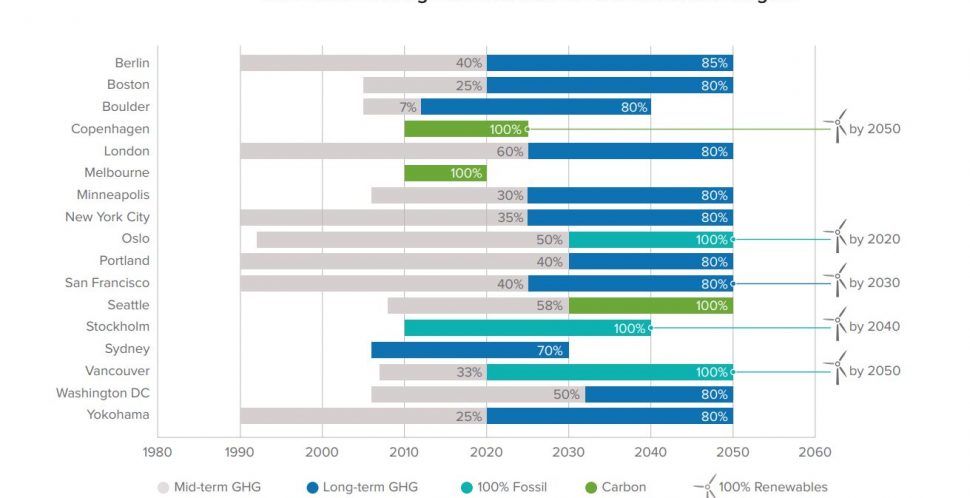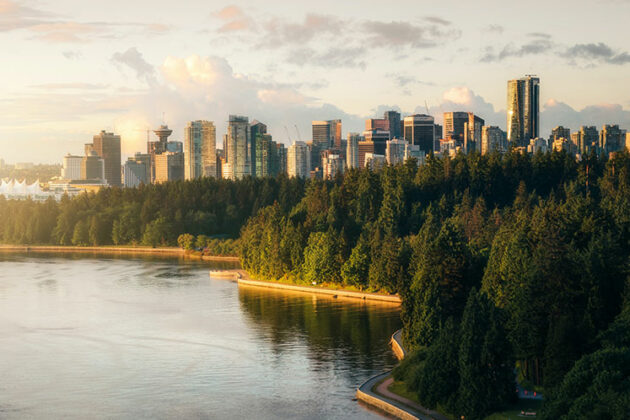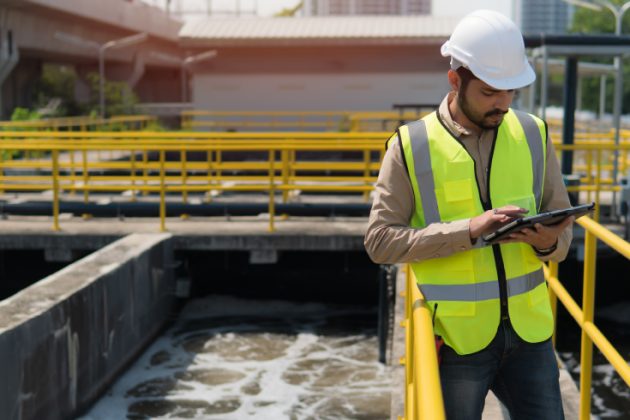Since 2010, the City of Vancouver has been executing on its world-acclaimed Greenest City Action Plan (GCAP), which aims to have Vancouver measurably reduce its environmental impact, and become the “greenest city in the world” by 2020. The data-driven plan is a bold one and has called on the Vancouver Economic Commission (VEC) and the City to support and enable innovation and innovators in new ways. The progress to date has been remarkable given the City’s historical past of natural resource development. However, it is also unsurprising given the region’s rich history in environmental activism. Today, the City is more than half-way through the plan and has already produced some impressive results, including a 15% decline in greenhouse gas emissions, 27% decrease in vehicle km driven per person, and a 23% decrease in solid waste to the landfill, all since 2007.
Vancouver has transformed from a resource-based economy to a low-carbon, knowledge-based economy that counts over 25,000 green jobs representing more than 6% of today’s local workforce within its City limits — the number is much higher when the metropolitan region is counted. Furthermore, local businesses from all industrial and commercial sectors are becoming more engaged in greening their local operations despite the lack of any meaningful federal or provincial regulations. Today, Vancouver’s economy is the most diversified in Canada while consistently enjoying the highest economic growth rates in the country. Clearly, going green has not constrained economic growth.
A key outcome from the GCAP is that it has enabled the VEC to support a thriving green economy and cleantech cluster and assisted in establishing the City as a green innovation platform. For example, the VEC’s successful Green and Digital Demonstration Program helps local cleantech, clean energy and smart city companies accelerate the commercialization of their new innovations by allowing free access to demonstration sites for pilot-testing, proof-of-concept, and showcasing. Another outcome of the GCAP is the work that the VEC is doing in partnership with City Planning to explore more innovative land uses and zoning for inner-city industrial land, providing opportunities for future green enterprise zones and innovation districts.
Vancouver is on a trajectory to become the greenest city in the world by 2020, but City Council has an even larger agenda. City Council has passed a motion to become a 100% renewable energy city by 2050. While an increasing number of global cities have committed to using 100% renewable energy in their electrical sectors, the City of Vancouver is the first city in North America to establish the goal of also becoming 100% renewable in heating, cooling and transportation.
To achieve this new target, new policies and programs will be established which will, once again, lead to more innovation within the city. For example, the Zero Emissions Building by-law recently passed with a goal of having 90% of all new buildings achieving zero emission outcomes by 2025 and 100% by 2030. This move has energized industry and government to establish a new Centre of Excellence for Zero Emission Buildings that will support local builders and designers, identify and remove barriers, and foster relationships between government and industry partners. When launched later this year, this new Centre will rapidly increase capacity and attract additional investment to stimulate innovation in the green building sector. Yes, good policy can stimulate green innovation and green economic development!
The evidence is clear. Going green is good for business and the local economy. Vancouver is proving this every day. However, it is the innovation platform that cities can provide that is so important to our future, and that can be emulated in other cities around the world for the benefit of humanity and our planet.
 Bryan Buggey
Bryan Buggey
Currently, Bryan is responsible for economic and business development at the City of Vancouver’s Economic Commission. In his role as Director, he is leading a team in charge of several initiatives with respect to the City’s Greenest City Action Plan, Digital Strategy and its Economic Action Strategy. Bryan also leads the strategy and sector development plans for Vancouver’s Green Economy, Technology sectors and Digital Entertainment sectors. Prior to joining the Vancouver Economic Commission in 2010, Bryan held senior roles in a variety of technology companies and consultancies including both enterprise and start-ups in the cleantech, wireless, and software verticals.
Bryan is passionate about the transformation of the local economy leveraging innovative technologies, clean energy and sustainable urban design as important tools to achieve that goal. Bryan has an undergraduate degree in Economics (Regional Economic Development), an MBA in IT Strategy and is also a graduate of UBC’s Summer Institute for Sustainability.



